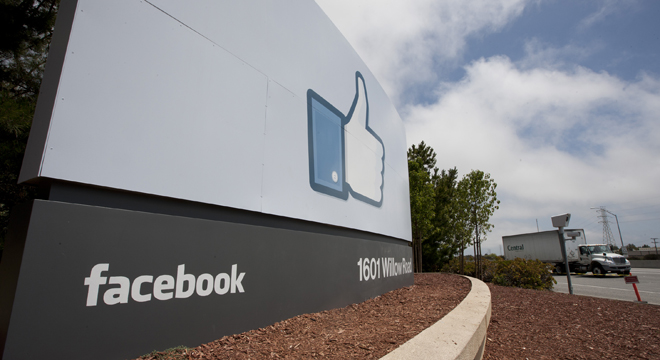Facebook’s inevitable expansion to one billion users around the globe happened the morning of Thursday, October 4, 2012, according to founder and CEO Mark Zuckerberg, who took to the website to announce the milestone.
“Helping a billion people connect is amazing, humbling and by far the thing I am most proud of in my life,” Zuckerberg wrote in a note on the official Facebook newsroom webpage.
But that was just one aspect of Facebook’s push to “celebrate” the one billion monthly active user mark with a PR blitz: Zuckerberg appeared on “The Today Show” with Matt Lauer on NBC the same morning (video below):
Visit NBCNews.com for breaking news, world news, and news about the economy
He also gave an interview to Bloomberg Businessweek (Facebook’s one billion user mark was featured on the cover of the newest issue) in which he revealed some of the company’s strategy going forward, including updating the website to make it more of a source of breaking news, treading into territory that would put it in more direct competition with Twitter and traditional news outlets.
As Zuckerberg told Bloomberg Businessweek (empahsis added):
The whole vision around News Feed was it should be like a newspaper and shouldn’t just be a list of posts your friends are making. I mean we should be able to really show you interesting trends and things that are happening. There are already trillions of connections between friend requests and all the content that’s being pushed into the system. At some point, that will start to be a better map of how you navigate the Web than the traditional link structure of the Web. I think there’s an opportunity to really build something interesting there.
On top of that, Zuckerberg said that he could see “get[ting] to this state where you can see things like finance, or even health care, or some aspects of governance having this be really tied into it.” As he elaborated:
My wife is a doctor and she always tells me about examples of things that you don’t think of as traditionally contagious diseases but that actually are highly correlated in social networks–happiness, smoking, obesity, things like that. I mean, happiness isn’t a disease but they’re actually highly correlated. So it seems like there’s something about social networks that should be factored into health care and keeping people healthy that just isn’t today.
Further, Zuckerberg posted a lengthier message on his personal Facebook profile, writing: “Celebrating a billion people is very special to me. It’s a moment to honor the people we serve,” and introducing a new video advertisement for the social network, its first official brand ad, according to Advertising Age.
Here’s the ad, called “The Things That Connect Us,” which compares Facebook to ordinary objects including “chairs, doorbells, airplanes, bridges, games,” as Zuckerberg wrote.
The video ad was directed by acclaimed film director Alejandro Gonzalez Inarritu and created by Wieden & Kennedy, an agency in Portland, Oregon.
“What we’re trying to articulate is that we as humans exist to connect, and we at Facebook to facilitate and enable that process,” Facebook’s head of consumer marketing Rebecca Van Dyck told Advertising Age, which also reported that the advertisement was in the works for months.
The ad reportedly won’t run on network TV yet, but rather on Facebook’s own online advertising products.
So far, though the ad’s existential, emotional tone and comparison between Facebook and ordinary objects including chairs has been greeted mainly with puzzlement and mockery by tech bloggers.
It should be noted that Facebook itself isn’t sure who it’s exact one-billionth user was, as Zuckerberg told Bloomberg Businessweek.
Moreover, although Facebook measures its total users by monthly active accounts, the company acknowledged in its July financial disclosure filing that, “there may be individuals who maintain one or more Facebook accounts in violation of our terms of service, despite our efforts to detect and suppress such behavior,” and that Facebook also tries to identify and shut down fake and spam accounts. Altogether, the company estimated that up to 8.7 percent of users, or some 83.1 million out of 955 million users, were fake.
Facebook has tried several creative ways of cutting down on the number of fake, spam and duplicate accounts, including recently asking some users if their Friends’ used their real names on their Facebook accounts.
That said, counting Instagram’s 100 million users, Facebook, which acquired the popular photo-sharing social app in April, passed the one billion user mark in September. But the two networks remain fairly separate for now.
So however you measure it, Facebook’s announcement of one billion users is impressive: Globally, there were 2.3 billion Internet users at the end of 2011, according to the International Telecommunications Union. If Facebook has anywhere close to the number of users it says it does, and with its efforts to expand to more users in developing nations, it’s clear that Zuckerberg has already built a social networking empire of historic proportions.
Correction: This article originally incorrectly stated that Instagram had 100 “billion” users, when in fact, the number is 100 million, according to a recent statement by Zuckerberg. We’ve since corrected the mistake in copy and regret it.






